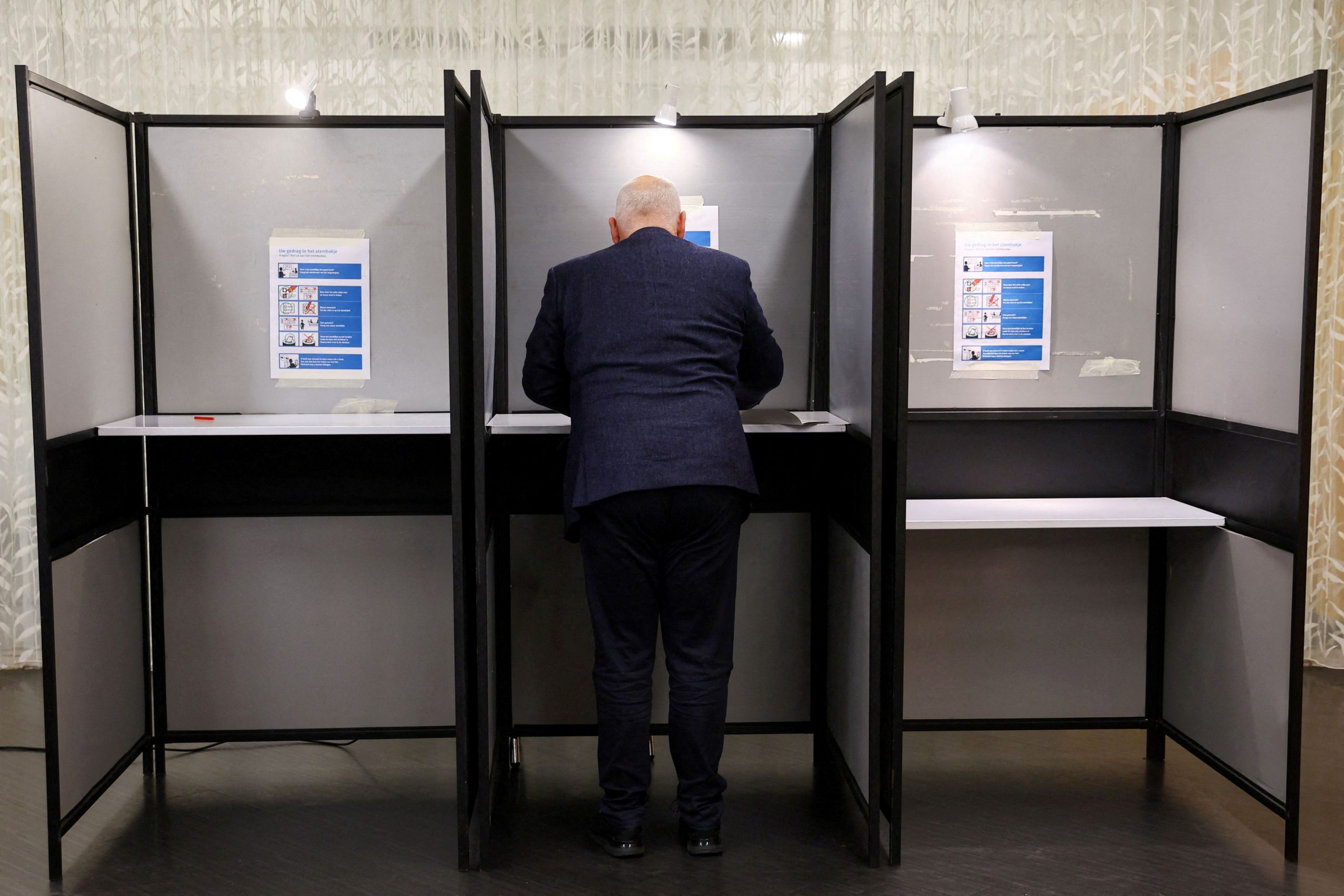The surprise first-past-the-post win of Geert Wilders’ far-right Party for Freedom (PVV) in the Netherlands’ elections this week briefly bumped the Israel-Hamas war off Europe’s attention, with the focus now turning to whether the outspoken anti-migration and EU skeptic politician can actually form a government.
The PPV secured 37 seats in the country’s 150-MP lower house of Parliament, meaning that Wilders must find at least three coalition partners from the other parties that elected deputies.
The Green Left-Labor alliance (GroenLinks-PvdA), led by former EU Commissioner Frans Timmermans, came second with 25 seats. However, the latter’s party leadership has repeatedly said it will not cooperate with Wilders and his PPV, with political analysts forecasting that it will serve as the main opposition.
Outgoing prime minister Mark Rutte’s conservative Party for Freedom and Democracy (VVD) won 24 seats, while the neophyte centrist party New Social Contract (NSC) party secured 20 seats.
The Democrats 66 (D66) party secured nine seats, the Farmer-Citizen Movement (BBB) won seven seats and the Christian Democratic Appeal (CDA) along with the Socialist Party (SP) each picked up five seats.
According to media reports from Amsterdam, as the leading party the PVV has the first mandate to try and form a coalition government, a process which officially begins on Friday. A possible far-right-to-center coalition that includes the VVD, NSC and possibly the BBB would, for instance, have a clear majority of 88 seats.



